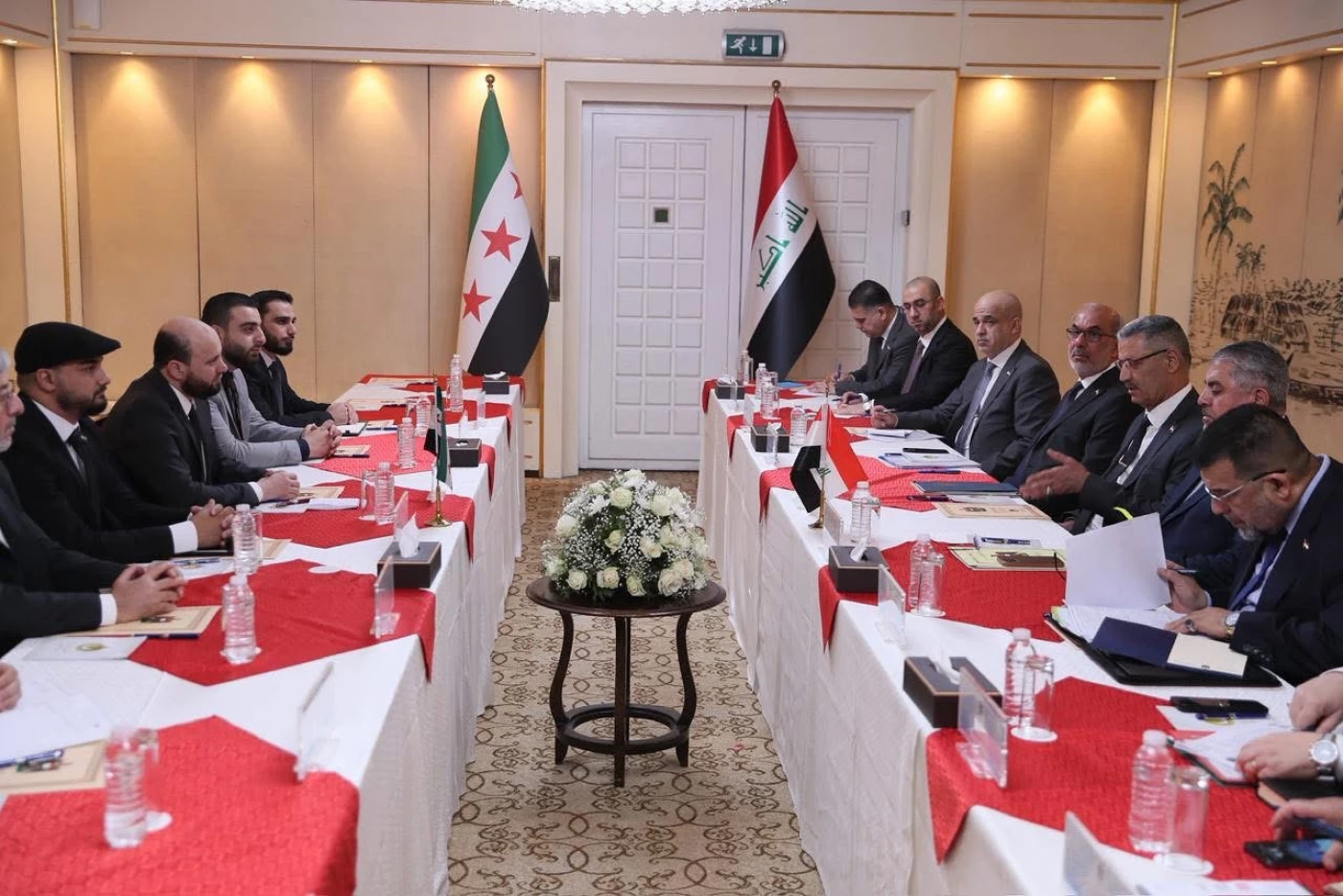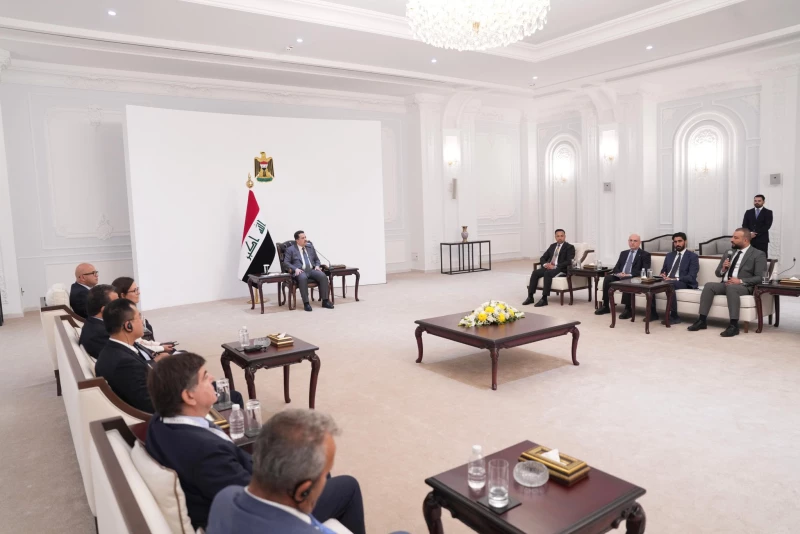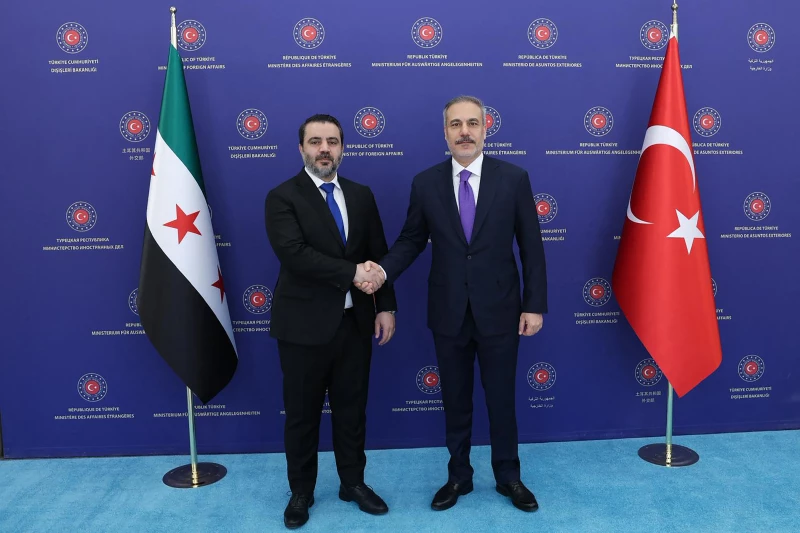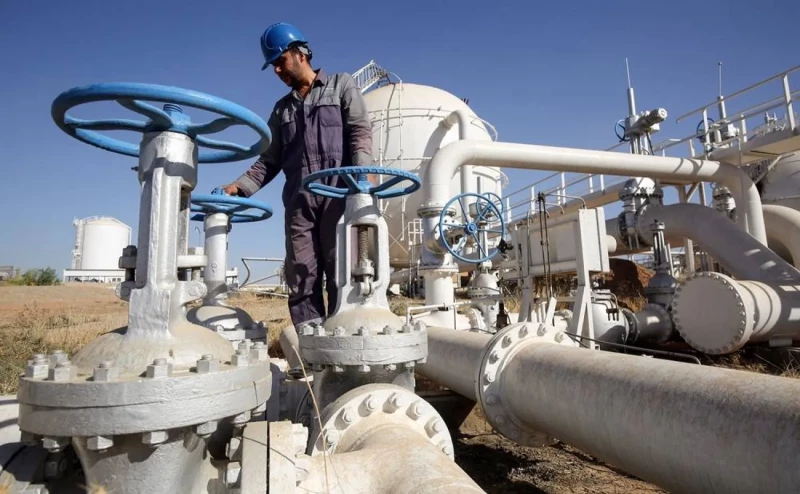ERBIL, Kurdistan Region of Iraq – Iraqi Oil Minister Hayyan Abdul Ghani on Tuesday received Syria’s Energy Minister Mohammed al-Bashir in Baghdad, with the pair discussing the prospects of reviving the Kirkuk-Baniyas pipeline.
The Syrian energy minister arrived in Baghdad on Monday evening at the invitation of Abdul Ghani, and is set to hold a number of energy-related meetings with Iraqi officials.
“The two sides discussed the current status of the Iraq-Syria pipeline and the possibility of using it to export quantities of crude oil,” according to a statement by the Iraqi oil ministry after the meeting.
During the meeting, Abdul Ghani told Bashir that Iraq is seeking to “increase export capacity from the southern ports, resume exports from the Turkish pipeline via the port of Ceyhan, and study proposals for exports via the Syrian Baniyas pipeline and the Lebanese Tripoli pipeline,” the statement read.
Exports of the Kurdistan Region’s oil through the Turkish Ceyhan pipeline were halted in March 2023 after Ankara lost a case against Baghdad in a Paris-based arbitration court. The case accused Ankara of breaching a 1973 agreement by allowing the KRG to start selling oil independently of Baghdad. The ruling ordered Ankara to pay $1.5 billion to Baghdad in compensation for breaching the agreement.
The 1973 agreement will not be renewed between Iraq and Turkey after it expires in July 2026, according to a presidential decree by Turkey’s Recep Tayyip Erdogan.
Abdul Ghani explained “the Basra-Haditha pipeline project (56 knots) with a capacity of 2.25 million barrels will secure export quantities through the aforementioned ports, in addition to securing crude oil for Iraqi refineries, which require additional quantities of crude oil in light of their increased production capacities.”
Bashir, for his part, underlined the importance of regional cooperation to restore Syria’s oil industry and energy infrastructure, pointing to the state of the Iraqi Syrian pipeline’s “aging and urgent need for rehabilitation or renewal.”
The pipeline was nationalized by Syria in 1972 following Iraq’s oil nationalization that same year. The Syrian regime stopped the flow of Iraqi oil through the Tapline in 1982 due to disputes between the two countries during the Iran-Iraq war.
Estimates suggest that restoring the pipeline would cost more than $8 billion, a senior source in the Iraqi oil ministry told The New Region in April. The pipeline’s export capacity would be around 700,000 barrels per day.
After almost a decade of civil war, the Hay’at Tahrir al-Sham (HTS), led by current Syrian President Ahmed al-Sharaa, launched a rebel offensive that overthrew the Bashar al-Assad regime in December of 2024. The previous Syrian government shared amicable bilateral relations with Iraq, but both sides have been cautious in their engagement and development of ties since the new government came to power in Damascus.
Syrian Foreign Minister Asaad al-Shaibani visited Baghdad in March, marking the first visit by a Syrian top official to Iraq after the regime change.
President Sharaa, meanwhile, has yet to pay a visit to neighboring Iraq since assuming power. Sharaa skipped the Arab League summit in Baghdad in May, sending Shaibani in his stead.


 Facebook
Facebook
 LinkedIn
LinkedIn
 Telegram
Telegram
 X
X



